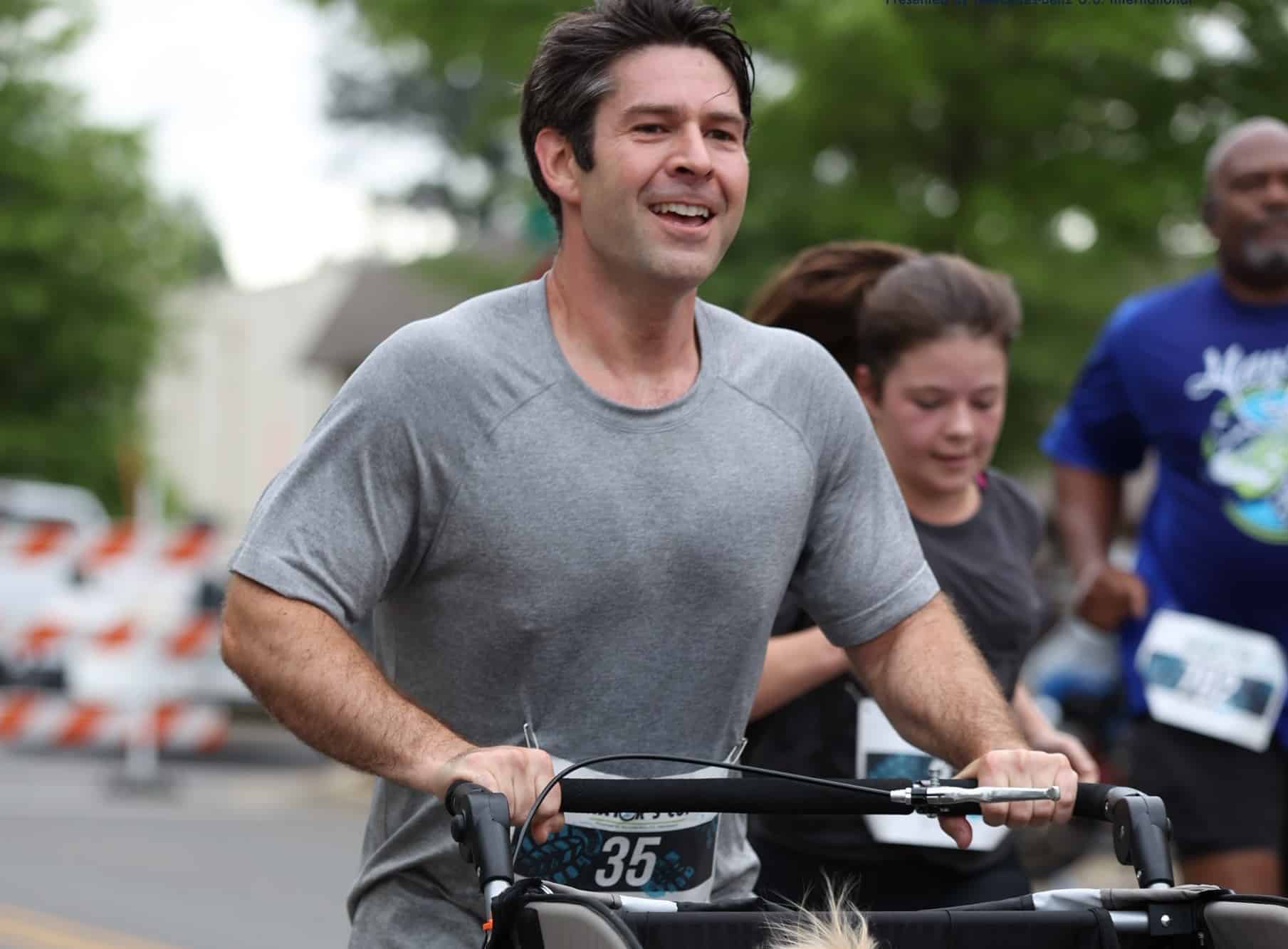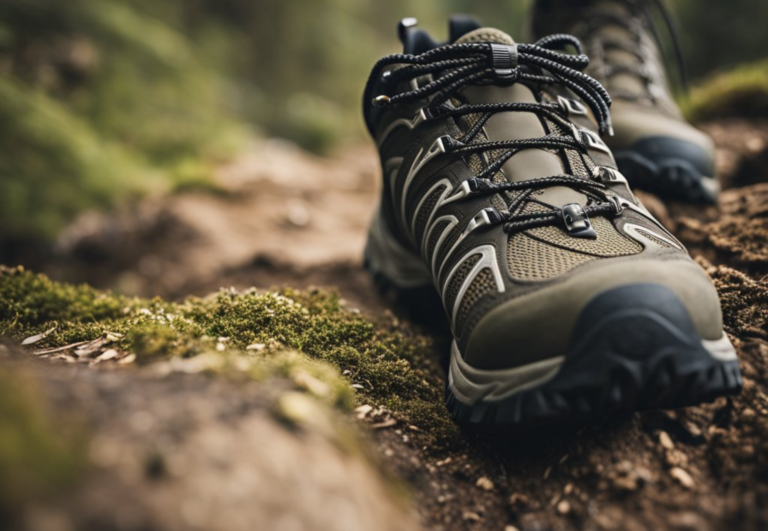Benefits of Trail Running for Mental Health: Why It’s Good for Your Mind
Trail running has emerged as not just a fitness trend but also a potent practice for enhancing mental health. As a running coach certified by the United States Endurance Sports Association (UESCA), I’ve witnessed firsthand the transformative effects this activity can have on one’s psychological state. The simple act of engaging with nature on a run can substantially lift mood, increase energy levels, and contribute to better sleep.
Studies have consistently shown that being outdoors and partaking in physical activities like trail running can lead to a reduction in symptoms associated with stress, anxiety, and depression. Moreover, the change of scenery and the challenge posed by varying terrains provide mental stimulation that is distinctly different from running on urban pavements. This not only promotes a sense of accomplishment but also enhances one’s connection to the environment, which is an integral component of mental wellbeing.
By integrating regular trail runs into a fitness routine, individuals may experience an uptick in endorphin levels – our natural mood stabilizers. The solitude of the trails coupled with the rhythmic sound of footsteps on earth can help evoke a meditative state, encouraging a sense of inner peace and clarity that supports overall mental health.

Physical and Psychological Health Benefits
Trail running serves as an effective conduit for enhancing physical stamina and psychological well-being. Regular engagement in this activity can pave the way for substantial improvements in both bodily health and mental sharpness.
Impact on Stress and Anxiety
Running on trails takes you away from the chaotic urban environment, allowing for a peaceful experience that helps diminish stress and anxiety levels. The act of physical activity triggers the release of endorphins, chemicals in the brain that act as natural painkillers and improve the ability to sleep, which in turn reduces stress.
Boosting Mood and Combating Depression
The rhythmic strides and exposure to the outdoors during trail running can elevate mood, offering a natural remedy for those combatting the symptoms of depression. The combination of increased sunlight and physical exertion promotes the production of serotonin, a key hormone in the regulation of mood.

Improvements in Sleep and Relaxation
Regular trail runners often report better sleep quality, attributing it to the physical exertion outdoors. Engaging in consistent evening runs can lead to a more structured sleep cycle, enabling deeper, restorative levels of sleep and thereby improving overall relaxation.
| Impact on Sleep | |
|---|---|
| Frequency | Regular |
| Duration | Evening |
| Quality | Improved |
| Relaxation | Enhanced |
Enhanced Cognitive Function and Creativity
Trail running stimulates both the body and mind, with natural settings serving as catalysts for creativity and clearer thought processes. The activity supports neural health, leading to better cognitive function, and can also serve as a meditative practice to spark innovative ideas.
Connection with Nature and Environment

I find that trail running deepens a runner’s bond with the natural world, offering unique mental health benefits through engaging with green spaces and mindful interactions with natural settings.
Benefits of Green Spaces
Green spaces provide a mental health oasis amidst our often hectic lives. When running on trails, the surrounding greenery—including forests, parks, and natural landscapes—has been shown to:
- Improve mood: The exposure to varied terrain and natural environments can elevate one’s spirits and energy levels.
- Reduce stress: Green spaces often contain lower levels of pollutants and higher oxygen levels, which can lead to reductions in stress markers like cortisol.
Key Components of Green Spaces:
- Variety of landscapes: Mountains, valleys, and plains
- Scenery: Visual appeal with diverse plant life and possibly wildlife
- Natural environments: The inherent tranquility of undisturbed green spaces
Mindfulness in Natural Settings
Mindfulness in natural settings encourages a present state of mind, where focus on the here and now is enhanced by the sensory experiences of nature. On trails, mindfulness helps runners:
- Engage the senses: The textures of the ground, the sounds of wildlife, and the visuals of scenery intertwine to create an immersive experience.
- Increase awareness: Mindfulness in running requires an awareness of one’s body and the surrounding environment, heightening cognitive engagement with the trail.
Mindfulness Benefits:
- Enhanced sensory perception
- Greater awareness of body and environment
By embracing the varied terrain and engaging my senses, I help runners appreciate the beauty of the trails and the mental clarity they can provide.
Social Interactions and Community Involvement
Participating in trail running promotes social connections, fostering a sense of community that contributes to better mental health. I’ve seen firsthand how involvement in this sport brings people together, creating strong support systems and relationships.
Strength of Community Support
Community plays a critical role in the mental health benefits derived from trail running. Programs such as parkrun, which I often recommend, are free, weekly events that not only encourage physical activity but also bring together individuals from various backgrounds. These events provide:
| Community Aspect | Impact on Runners |
|---|---|
| Regular Meetups | Creates consistency and accountability |
| Diverse Participation | Offers a broad support network |
| Volunteer Opportunities | Enables a sense of contribution and belonging |
Trail running groups serve as an extended support system, offering encouragement and a sense of calm amidst life’s challenges.
Building Relationships Through Sports
Sports, especially trail running, have an extraordinary power to build relationships among participants. The shared experiences on the trail lead to:
- Bonds formed through shared struggles and achievements
- Support that goes beyond the trail, safeguarding mental health
- Increased sense of social connection and accountability
As we engage in physical exertion side by side, we often develop relationships that are both meaningful and supportive. My experiences have shown me that these bonds are significant not only for individual runners but also for fostering community cohesion.
Personal Growth and Self-Improvement
Trail running serves not just as a physical challenge, but as a profound catalyst for personal development. By engaging with nature on the trails, I find that runners often experience significant boosts in self-improvement areas such as goal-setting, self-efficacy, and self-confidence.
Setting and Achieving Goals
In my coaching experience, I guide runners to strategize their trail running ambitions effectively. Setting specific, measurable, achievable, relevant, and time-bound (SMART) goals is critical. Here’s a simplified outline:
- Specific: Choose a trail run challenge, like a particular mountain track.
- Measurable: Determine how the success will be measured—distance, time, or simply completion.
- Achievable: Ensure the goal is within reach, considering your current capabilities.
- Relevant: Align the goal with broader personal ambitions for growth.
- Time-bound: Set a reasonable deadline to accomplish this goal.
This systematic approach not only helps in maintaining focus but also furnishes a clear roadmap. When my runners achieve their set goals on the trail, it not only provides a sense of accomplishment but reinforces their commitment to continuous self-improvement.
Increasing Self-Efficacy and Confidence
Regular trail running naturally fosters increased self-efficacy. As I observe my runners tackle various terrains, I witness their belief in their own capabilities grow. This belief is critical for resilience, an attribute that helps them overcome diverse obstacles on and off the trail. A runner’s growing self-efficacy contributes to a cycle of positive reinforcement:
- Tackle a challenging route.
- Overcome it through persistence and skill.
- Emerge more confident in abilities.
Moreover, each run acts as a personal restoration session. Away from daily stressors, runners find time for reflection and gaining clarity, supporting their overall personal growth. Success in trail running translates into enhanced self-confidence, spurring them to take on new challenges with a sense of assuredness.
Fitness and Physical Health Considerations

As a UESCA certified running coach, I stress the importance of understanding how trail running benefits physical health and fitness, while also noting the need to avoid injury. Emphasizing proper technique and building endurance are crucial steps to a successful trail running experience.
Avoiding Injury and Promoting Endurance
Injury prevention on the trails begins with awareness and preparation.
Balance is key; it’s essential to incorporate exercises that improve stability, ensuring that your muscles can support you on uneven terrain.
Endurance is built gradually by increasing mileage responsibly to prevent overuse injuries.
- Warm-up exercises pre-run: dynamic stretching to enhance flexibility.
- Post-run recovery: foam rolling and proper hydration.
Physical Health and Running Technique
The technique is a cornerstone of physical health in trail running. A focus on form, such as a mid-foot strike and maintaining a stable core, contributes to efficiency and safety. This also ensures the maximum benefit to your cardiovascular exercise, enhancing long-term fitness without causing harm.
- Running posture: straight back, relaxed shoulders.
- Foot placement: mind foot strikes to mitigate impact.






